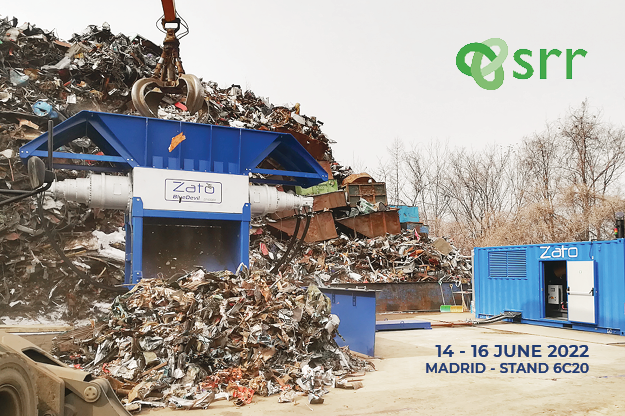
Mega shredders
The constant pursuit of increasing economies of scale meant that ever bigger and more powerful shredders were produced to lower processing costs per tonne shredded. But the flip side meant ever-increasing capital outlay and higher compliance, consumable, labour and energy costs.
Mega shredders have dominated the US metals recycling industry for decades. Independent recyclers or feeder yards from the large corporations would downsize or densify their scrap by baling, shearing or cutting with mobile shears or gas axes before sending the scrap to a mega shredder for further processing.

Unshreddables
The Achilles heel of mega shredders is that the very large capital outlay means they must be constantly fed at near capacity with the right kind of scrap free from explosive materials and unshreddables. Short downtime periods due to explosions, maintenance or even lack of suitable feed stock, can quickly turn a large shredder into a costly liability. Other factors which are increasingly affecting the profitability of large shredder operations are ever stricter and expensive environmental compliance regulations, and higher energy and transportation costs.
Zato’s Blue Devil twin shaft rotary shear offers not only a real alternative to processing scrap with a large shredder but it can also be a hammer mill’s best companion by reducing overall energy, consumable and transportation costs. By pre-shredding the scrap, potentially explosive items are neutralised and unshreddables are filtered out before they get to the hammer mill.

Cutting the right way
The Blue Devil shears scrap through two slow counter-rotating high torque shafts. Each shaft is fitted with 30 individual wear-resistant blades which cut (not pound or tear) the scrap at a rate of 25–30 tonnes per hour. Everything from whiteware, cars with engines, half-inch stainless steel plate and even concrete encrusted re-bar can be shredded with ease. Very little dust is generated, while fires or explosions are practically eliminated due to the slow rotation of the rotors.
Zato Blue Devil runs autonomously without the need for an independent operator, reducing operating costs significantly. Its sturdily designed base frame means there is no need for costly foundations. Hammer mill operators value the scrap which has been pre-processed with a Blue Devil as it increases a shredder’s output by up to 40% while simultaneously reducing wear and tear and energy consumption.
Compared to a shear baler or mobile shear, the Blue Devil has a much higher throughput with lower operating costs and produces a clean dense scrap that can be sold directly to a foundry. The higher density scrap produced reduces yard space, transport costs and lower melt times for a steel mill. With a relatively low capital outlay, low operating costs and high output, it’s no surprise that Blue Devils are popping up at scrapyards throughout the US.



